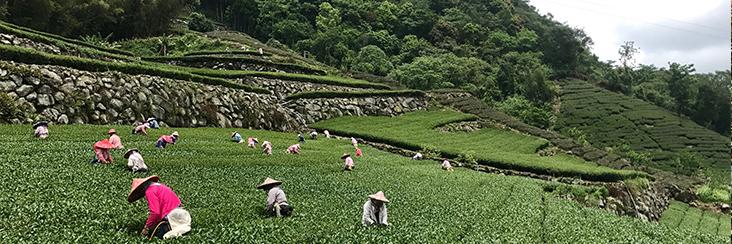Eco-Cha Tea Club

Roasted Shan Lin Xi High Mountain Oolong | Eco-Cha Tea Club
Batch 79 of the Eco-Cha Tea Club is a Roasted Shan Lin Xi High Mountain Oolong Tea. It is the roasted version of our winter 2021 batch we offered in our store. Our friend from whom we sourced this tea submitted a single entry from this same harvest into the Lugu Farmers' Association Dong Ding Oolong Tea Competition and achieved Top Category Award (shown above). When our friend told us this exciting news, we asked him if we could hire his services to roast our reserve stock the same way he roasted his top award winning tea. So this month's edition of the Eco-Cha Tea Club is from the same harvest and roasted the same way as the tea that ranked within the top 2% out of over 5000 entries.

Dong Ding Tie Guan Yin Oolong Tea | Eco-Cha Tea Club
Shown above is the father, son and uncle facilitating a harvest from this new plot of tea a few years ago. It's just this type of local scene that is the heart of our inspiration. This is what it's all about!

Lugu Competition Dong Ding Oolong Tea Tasting Notes | Eco-Cha Tea Club
Batch 72 of the Eco-Cha Tea Club is a Lugu Competition Dong Ding Oolong Tea. This tea type is one of the top three most famous Taiwan Teas and was prepared for one of the largest and most prestigious Oolong Tea competitions in the world. So we thought it's representing as a specialty Taiwanese Tea!

Gold Medal Award Jin Xuan High Mountain Tea | Eco-Cha Tea Club
The quality standard for the Meishan competition calls for a lightly roasted High Mountain Tea character. This is a relatively new flavor profile that stands between an unroasted High Mountain Tea and the more traditional, medium roasted Oolongs. Taiwan's national tea judges set this standard to promote a different style of tea making that has its own specialty quality. The art of roasting is added to the value of expert farming methods and processing of High Mountain Tea. In order to achieve optimal roasting results, the leaves need to be sufficiently oxidized, but not too much — perhaps 5-10% more than a standard unroasted "green" High Mountain Tea.

